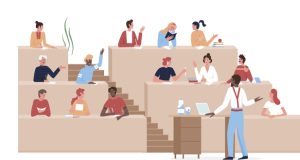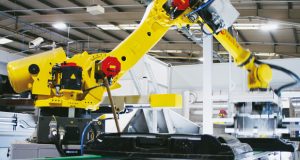Whole-Workforce training is creating effective, demonstrable standards along with ‘Knowledge Networks’ in the UK cleaning sector reports Sara Bean
The cleaning industry has experienced a huge amount of change over the past few years. In response we are seeing the demand increase for vastly improved demonstrable training standards that are delivered equitably, fast becoming a key topic of conversation when discussing any quality service delivery.
At UhUb we are seeing that through constant conversations involving new thinking, invention and fast adoption, businesses who put energy into change are strengthened and can create a more resilient work environment, and workforce. They can aspire to do more and, importantly, expect to deliver those aspirations. Being told there are limits to what can be done is no longer as acceptable as it once was.
Setting training standards is a decision about how things should be done, and therefore can be subjective. Within the cleaning sector such ‘standards’ have often been decided upon and disseminated by a small group of people or an organisation who may have had a very specific view of how things have always been done and by whom, and therefore, how things should be done in the future. Why change what has always seemed to work? The issue there is the world HAS changed, and alongside it so has service user expectations on skills, knowledge, evidence of how standards are being met and maintained, and crucially, developed for future needs and aspirations. Historically there has been very little monitoring of standards, meaning once published there is no real-time data on how they are received, perceived, or progressing.
Explains Stephen Goddall, MD at UhUb: “At UhUb we believe laying out, and publishing a set of skills standards is one thing, in principle a good thing, but making sure they are deployed ‘as standard’ is very different. To go further, demonstrability is different again and most published standards have failed to gain traction across the sector, effectively. They may be ‘known’, they may be spoken about, but are they delivered day in, day out?”
What is clear in some parts of the sector is that there is something different emerging. Forward thinking businesses that understand ‘training for all’ is needed, sometimes even outside business borders, and the value of data as evidence, are taking a new approach. This is being led by our community and facilitated by the rapid development of UhUb itself to match those needs and creative approaches. The adoption of Whole-Workforce training is at the heart of that movement.
WHY WHOLE-WORKFORCE TRAINING?
It’s simple. Whole-Workforce training is the only way to ensure everyone across the business receives the same level of training, has the same skills, understands the core service the company provides, yet enables the creation of personal training plans for any role in a company. Once a solid foundation of basic training has been established, it can be built upon with career path and leadership training for both field and non-field-based staff.
This is how standards in knowledge, productivity, abilities, protection, and information can, and are, being created. When supported by ‘live’ data, as with UhUb, Whole-Workforce training can significantly and surprisingly improve the quality of cleaning standards. Put simply if it’s demonstrable with data then it happened and can be measured.
While Whole-Workforce training is a proven way to create standards across a business, the industry needs to go further. Standards must be established and delivered right across the sector, and the UhUb Community are doing this through ‘Knowledge Networks’, which are being deployed business to business across the supply chain.
WHAT ARE KNOWLEDGE NETWORKS?
More than ever companies need to provide a commitment to their service users that every operative will be trained to the same standard. Knowledge Networks enable sub-contracting companies to use the same training tools and share learning externally (training out). This ensures training is consistent even if operatives are outsourced. In addition, companies are deploying 3rd party training, including social, product, equipment and site or client specific learning to those who need it (training in). As supply chains become more complex and less linear UhUb believe developing standardised, demonstrable Knowledge Networks will become more valuable.
Training and education can and should go further still. We all understand that if you employ and deploy staff these days you are responsible for them beyond uniform, wages, PPE and basic training and need to consider issues such as their wellbeing by understanding their personal challenges. You are expected to look after your staff and see them as more than just a skill set or a resource, which in turn creates loyalty and engagement.
Fundamentally we need to realise, as many leaders are, that you cannot teach tomorrow's standards or meet expanding training aspirations with yesterday’s tools and methods. Change is happening quickly, and sorely needed, to ensure a modern quality training offering is always provided with equity and tools which can cope with future aspirations.





